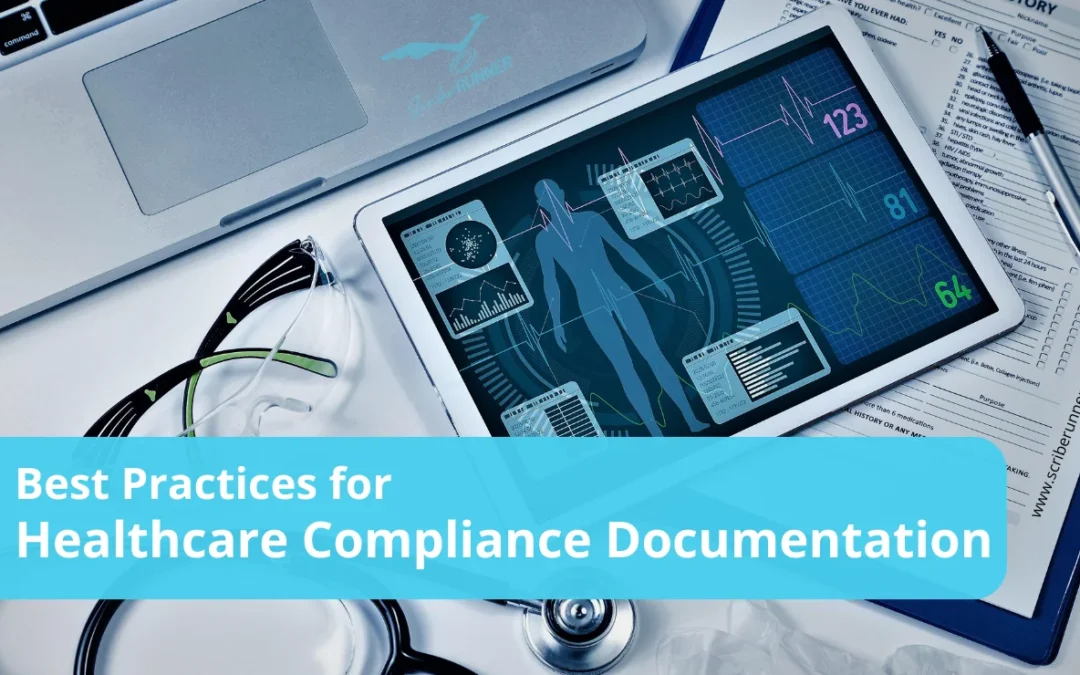For healthcare organizations, maintaining healthcare compliance highly depends on the expertise and tools your organization entails, particularly when you are dealing with an audit and incident of non-compliance. Perhaps these are the most essential elements for better and error-free compliance documentation.
However, maintaining compliance documentation can be overwhelming, and maintaining compliance can often feel like navigating a complex maze filled with regulations, policies, and endless paperwork. As an expert in compliance documentation, with years of experience in this field, we understand compliance professionals’ frustrations and challenges. It’s not just about ticking boxes; it’s about creating a culture of trust and accountability within your organization.
The Recent research 2023 study published in the Journal of Healthcare Compliance highlights the growing complexity of compliance requirements in healthcare, noting that organizations with robust documentation practices are better equipped to navigate these challenges. Additionally, the book Healthcare Compliance: A Practical Guide by William A. Cohen emphasizes that comprehensive compliance documentation not only ensures adherence to regulations but also enhances organizational efficiency and risk management.
In this guide, we’ll discuss how compliance documentation plays an important role in the success of healthcare organizations and why it’s not merely a bureaucratic necessity but a vital component of patient care and organizational integrity.
With insights drawn from the latest research and practical tips for developing an effective documentation framework, this content aims to empower you and your team. So, let’s embark on this journey together, making the complex world of healthcare compliance a little clearer and a lot more manageable!

What Does Compliance Documentation Entail?
Compliance documentation refers to the collection, sharing, maintenance, and storage of reports and records that help healthcare organizations adhere to various regulations. These documents serve multiple essential purposes, including:
- Demonstrating Legal Adherence: During audits, compliance documents serve as evidence that your organization meets regulatory requirements.
- Recording Compliance Violations: Accurate documentation allows organizations to track and address any violations, which is crucial for rectifying issues.
- Collecting Data and Reporting Analysis Results: These documents can help in the analysis of compliance metrics, ensuring that all relevant data is easily accessible for evaluation.
- Conducting Audits: Well-maintained records streamline the auditing process, making it easier to assess compliance efforts.
- Documenting Risk Assessment Outcomes: Detailed records of risk assessments are essential for identifying vulnerabilities and implementing necessary corrective actions.
- Outlining Response Plans Post-Incident: Compliance documentation ensures that organizations have clear protocols in place to respond to incidents, minimizing potential damage.
- Detailing Corrective Actions Taken: Documentation helps track the steps your organization takes to resolve reported violations, providing transparency and accountability.
- Maintaining Training Records: Keeping records of compliance training helps ensure that employees are up-to-date on necessary procedures and regulations.
- Guiding Staff: Compliance documents provide vital information and guidelines to staff, helping them understand and follow standard operating procedures (SOPs).
- Facilitating Internal and External Communication: These documents play a key role in communicating compliance activities to both internal teams and external stakeholders.
Maintaining accurate and comprehensive records is essential for compliance professionals to fulfill their roles effectively and meet organizational needs.
The Importance of Compliance Documents for Your Organization
Beyond facilitating compliance activities, having readily accessible documents significantly impacts your organization’s reputation. By minimizing fraud, waste, and abuse, careful record-keeping helps you:
- Avoid civil lawsuits and hefty fines for non-compliance
- Stay updated on regulatory changes
- Ensure equal access to critical information for all employees
- Prevent lapses in employee compliance training
- Enhance transparency in compliance efforts
- Identify security gaps and other risks
- Streamline compliance audits
Developing a Compliance Documentation Framework
Compliance officers should adopt an organizing framework that guides the collection, sharing, and storage of compliance documents. For healthcare organizations, this framework typically reflects the standards set by regulations such as the Health Insurance Portability and Accountability Act (HIPAA).
Within your framework, compliance documents should encompass:
- Data collection policies: Access to PHI and protection of sensitive data
- Operational policies and procedures: Guidelines for data collection, privacy, ethical practices, audit processes, and operational efficiency
- Recovery and remediation plans: Protocols for reporting incidents, implementing corrective actions, and documenting updates
Types of Compliance Documents to Maintain
When considering compliance documentation, it’s helpful to categorize documents into four main types:
- Operational documents: Detail internal policies and procedures for compliant operations, including crisis management plans, HR documentation, employee codes of conduct, and vendor agreements.
- Data privacy documents: Outline security measures for managing data and PHI, including confidentiality agreements and business associate agreements.
- Technical security documents: Include reports that help compliance officers detect data risks and update procedures, such as surveillance records and maintenance logs.
- Audit documents: Cover reports on past and ongoing compliance audits, including risk assessment reports and remediation plans.

Support From Compliance Document Services
Managing the myriad compliance documents can be a time-consuming task, even for the most seasoned professionals. That’s where compliance document service providers come into play. Scriber Runner offers comprehensive compliance solutions, including software packages that provide templates for risk assessments, policies, and essential documents. Our platform centralizes the management, sharing, and storage of all records related to your compliance activities, making the process much more efficient.
Explore how Scriber Runner can simplify your compliance documentation process. Schedule a demo today!
Best Practices for Effective Compliance Documentation
To maximize the effectiveness of your compliance documentation efforts, consider implementing the following best practices:
- Standardize Documentation Processes: Establish standardized templates and procedures for creating compliance documents to ensure consistency and clarity.
- Regularly Review and Update Documents: Compliance regulations evolve, and so should your documentation. Schedule regular reviews to update policies and procedures as necessary.
- Train Staff on Documentation Practices: Ensure that all employees understand the importance of compliance documentation and are trained on how to maintain it effectively.
- Utilize Technology for Document Management: Leverage compliance management software to streamline the creation, storage, and retrieval of documentation. This can greatly reduce the burden on compliance officers.
- Encourage Open Communication: Foster a culture of transparency and communication regarding compliance activities. Encourage staff to report issues and collaborate on solutions.
Summing It Up
Effective compliance documentation is vital for healthcare organizations striving to meet regulatory standards and protect patient information. By understanding the nature of compliance documents, recognizing their importance, and developing a solid documentation framework, your organization can enhance its compliance efforts. Partnering with services like Scriber Runner can further streamline the documentation process, allowing you to focus on delivering quality care while staying compliant.
Ready to take your compliance documentation to the next level? Contact Scriber Runner today for more information!

